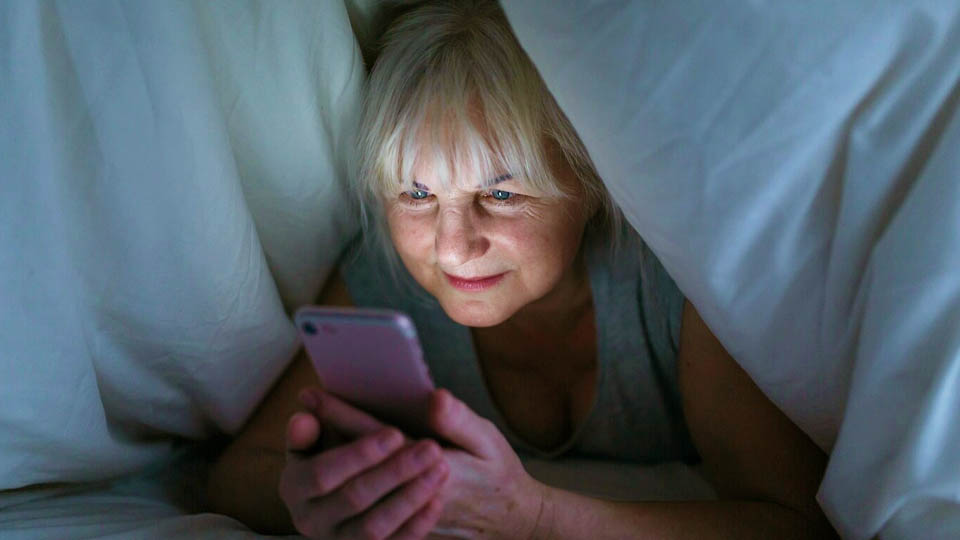
Most people are glued to computer screens all day. But, even after hours, the constant buzzing, pinging, and humming continues, reminding us that we're part of the digital world. And our always-online way of life may be putting us in danger.
Most people check their phone over 50 times per day. Cybercriminals know we're becoming overwhelmed by the constant demands for attention from our phones. They're using this deluge of notifications for a cyberattack method called MFA fatigue attacks. It has successfully helped them to hack high-profile companies like Microsoft and Uber.
Is it time to take a step back? We have solutions and easy, actionable steps to stop this annoying onslaught in our free time. From cleaning up your phone to using a VPN, learn to reduce your screen time effectively.
There Are Real Dangers to Excessive Screen Time

Excessive screen time can lead to physical ailments, as well as poor mental health, and decreased academic and work performance.
- Blue light from backlit devices reduces or delays melatonin production because your body perceives blue light as daylight. A lack of melatonin can prevent you from feeling sleepy and disrupt your sleep cycle.
- Excessive screen time can pose a severe risk to eyesight.
- It has also been linked to mental health problems, such as loneliness, depression, and anxiety.
- The 'endless scroll hunch' leads to poor posture, which may cause neck and back pain. There's also the looming threat of weight gain caused by sedentary habits.
- The deluge of notifications can lead to notification fatigue. There's been a rise in MFA attacks via MFA push notification spam. In this type of attack, a hacker usually knows the username and password of one of your apps where you have enabled MFA. When he tries to log in, the app sends you a notification on your phone asking to approve the login attempt. The hacker would repeatedly try to log in, causing you to lose track of login attempts or click 'Yes' to silence the phone.
Even if you spend all day on your phone, reducing screen time is easier than it may appear. Start by getting some hard facts and statistics about your screen time.
How to Find Out How Much Time You're Spending on Your Mobile Screen
Here are some quick ways to check your screen time.
- On an Android, go to Settings >> Digital Wellbeing & parental controls' dashboard >> Screen time.
- On an iPhone, go to Settings >> Screen Time.
If you're surprised by how much time you spend on yoscreen, it's time to take the next few steps.
Tips to Regain Control of Your Screen Time
Try to get more quality out of your screen time rather than just trying to reduce it. For example, you could pick a good movie to relax with rather than getting lost in social media after work. Sounds manageable? Here are more easy-to-implement tips.
1. Clean up your phone and reduce the number of apps to a minimum. Remember, all apps log your activities and share that information with business partners, which almost always include data brokers and advertising companies. Do you need that extra exposure, or can you get along without the app? Review and edit the permission levels of all the apps you want to keep.
2. Establish new priorities. Implement a more regimented daily schedule in which studies, work, or chores come first.
3. Look for opportunities for more physical and social activities. Reach for a book, go for a walk, and spend more time with friends or family.
4. Be mindful about your use of devices. Are you just scrolling because of FOMO, or can the device help solve a problem? Only multitask with good reason. For example, put your phone away during mealtimes.
5. Banish blue light from your sleep zone. Leave your devices in a different room. If you have to peek at a device or watch TV in bed, reduce the blue glare that plays havoc with your sleep. Adjust the light tone from blue to a warmer color by turning on your TV's blue light filter or attaching a blue light filter to the screen. You could also use your phone's settings to reduce its backlight intensity at a specific time at night. Turn all screens off one hour before bedtime.
6. Take it easy. Introduce small steps at first. Once you've established how much time you spend on your phone, aim to reduce it by 15 minutes weekly.
Using Apps to Limit Your Screen Time
The biggest problem with using apps to help you manage your screen time is that… they're apps on your phone. Most of the so-called screen time assistance apps use gamification, social encouragement, and sharing with friends to encourage you to reduce screen time. Sadly, most of them merely use it as a cover to track your phone usage down to the tiniest detail and then sell the data to advertisers.
Using a VPN could be a great help. Some premium VPNs can help you fight spam, targeted ads, and being bombarded by all that irrelevant or malicious content. It also obscures your physical location and encrypts sensitive information when you connect to unsecured Wi-Fi spots.
Build a Healthy Relationship With Digital Tools
It's crucial to be mindful of our screen time and take considerate actions to reduce it. Excessive scrolling is bad for our bodies and minds and can even make us vulnerable to cyberattacks. We can break free from the constant digital demands by taking small steps and prioritizing physical and social activities. Start now and enjoy a healthier, more balanced life.
 Samsung Galaxy A51
Samsung Galaxy A51  Samsung Galaxy A51 5G
Samsung Galaxy A51 5G  Blu Life Play 2
Blu Life Play 2  Samsung Google Nexus S
Samsung Google Nexus S  LG Spectrum
LG Spectrum  Xiaomi 14 Pro
Xiaomi 14 Pro 

